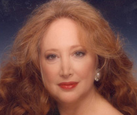Classical music is timeless. Many films have used classical music to enhance their storytelling. Whenever people remember 2001: A Space Odyssey, one immediately thinks of Richard Strauss’ Sprach Zarathustra. Producer of Gone with the Wind, David O. Selznick used two of Claude Debussy’s pieces, Prelude to the Afternoon of a Fawn, and The Girl With the Flaxen Hair in the Portrait of Jennie. Apocalypse Now featured Richard Wagner’s The Ride of The Valkyries. Fantasia’s music, The Sorcerer’s Apprentice, was a classical piece by Paul Dukas, and of course, The Black Swan also starred Tchaikovsky’s Swan Lake. And these are just some of the films that appreciated the value of classical music added to the films.
I tried to pick some of the most popular, yet melodic pieces, to play for you. Some you will recognize, and some will be new.
Gustav Holst was a composer, arranger, and teacher. Born into a family of musicians, Holst wanted to play the piano but couldn’t because he had a hand injury. So, he took up the trombone, which his family hoped would cure his asthma. He also made a living playing the trombone in his early years. Holst was very shy, and he never sought adulation. When The Planets debuted, it changed his life forever and brought him the fame he never sought or really appreciated.
The idea for The Planets evolved from Holst’s interest in astrology. For the rest of his life, he would also make charts for his friends. Holst created several different movements for six planets, Mars, Venus, Jupiter, Saturn, Uranus, and Neptune, (in that order). Each piece has a different personality. Holst later began music education for women at St. Paul’s Girls School. He was a man ahead of his time.
Alexander Borodin was a doctor and scientist, and in his heart, he always felt that being a doctor and scientist was his true calling. Composing music gave him a mental release. His work is beautiful. The Polovtsian Dances from Prince Igor took him ten years to complete. He died before he could finish it. Nikolai Rimsky-Korsakov and Aleksandr Glazunov finished it for him, and the result was spectacular. This music inspired the songs Stranger in Paradise and Baubles Bangles and Beads from the Broadway show and later the film, Kismet. Borodin even received a Tony Award – 68 years after his death. It should be noted that Borodin created the first medical school for women. Another man ahead of his time.
Nikolai Rimsky-Korsakov was a skilled composer who also became a wonderful teacher. His talent as a composer propelled his work to become an opera and later a ballet. His piece, Scheherazade, which later became a ballet was danced by the famous Nijinsky. It caused a sensation and scandal in the ballet world at the time because the piece was so sensual, but in reality they adhered to the story because Scheherazade is a very sensual piece.
It is the story of a Sultan who lets his brides live only one night. Then he meets the fascinating Scheherazade, who each night tells him a different story and excites his imagination. She gets to live and ultimately causes a change in the Sultan and his thinking.
Composers Rimsky-Korsakov, Tchaikovsky and Mussorgsky were all friends. Rimsky-Korsakov believed that Borodin’s work was extraordinary. These musicians inspired each other and future generations like Ravel and Debussy.
Claude Debussy was a French composer influenced by Rimsky-Korsakov. Debussy developed his own style. He was nearly 40 years old when he first achieved success. His work is figured prominently in the film, Portrait of Jennie. His first masterpiece is considered to be The Prelude to an Afternoon of a Fawn. He was called an impressionistic composer at that time, but he resented that label. Impressionistic means an overall influence rather than with great detail. Debussy’s melodies are haunting and unforgettable. His genius inspired another French composer, Maurice Ravel.
Inspired by both Rimsky-Korsakov and his contemporary, Claude Debussy (who was twelve years older), Ravel’s work became popular around the world. He, too, was called an impressionistic artist and he also resented the title.
Ravel became a master of orchestration. During the 1920s he performed in New York and received a standing ovation. He was very surprised because he had never received such adulation in his homeland of France. He considered The Bolero, which was his most famous piece as one long gradual crescendo, an orchestral background with no real music. He was shocked by how popular this piece became. To quote Ravel, “I’ve written one masterpiece – Bolero. Unfortunately, there is no music in it.” In truth, Bolero is a masterpiece and it was featured in the film 10 with beautiful Bo Derek. One must add the music Daphnis & Chloe and Reverie to the list of Ravel’s beautiful work. He was a master and he deserved all of the success the world bestowed on him.
It should be pointed out that Rimsky-Korsakov, Tchaikovsky and Mussorgsky were peers, and at times they felt both jealousy and admiration for each other. Ultimately, their friendship was more important than their rivalry. The same could be said about Debussy and Ravel. Many of the classical composers used poetry and literature for inspiration.
To those of you who think you may not like classical music, tune in and give it a try. You will find this music alluring, thanks to the great masters and their creations.
I listened to all of my classical pieces to put this show together. I wanted to give you the most beautiful, powerful, and memorable music upon which to reflect. Classical pieces can be very long so, for this show, I am playing some excerpts, like Bolero. Movies Broadway Singers and Beyond plays the full sixteen plus minutes of Bolero in its entirety frequently, so for this special I have given you the excerpt. Some of the pieces, like The Polovtsian Dances, will be played in full.
Aaron Copland’s El Salon Mexico will also be played in its entirety (my own personal favorite version of this piece of music is of Ricardo Montalban who played this music in the film, Fiesta. It was unforgettable.
The artists whose work is paid tribute on this show faced the agony and ecstasy of life in the arts. They faced the agony of failure and loss and the ecstasy of having their lives and work become immortal. These are some beautiful melodies. I hope you enjoy them.
As usual, the show may not start right on time. It could start a few minutes late. You’ll know you arrived with Aaron Copland’s Red Pony – Morning On The Ranch and we close with Copland’s Red Pony – Happy Endings.
With a song in my heart.
Sherry
Show Times
| Sunday, March 27
7 pm Eastern Time 4 pm Pacific Time |
Saturday, April 2
8 pm Eastern Time 5 pm Pacific Time |
| Tuesday, March 29
2 pm Eastern Time 11 am Pacific Time |
Wednesday, April 6
11 pm Eastern Time 8 pm Pacific Time |
| Thursday, March 31
9 am Eastern Time 6 am Pacific Time |
Friday, April 8
3 am Eastern Time 12 am Pacific Time |
 Movies Broadway Singers and Beyond Internet Radio Station Hosted by Sherry
Movies Broadway Singers and Beyond Internet Radio Station Hosted by Sherry




